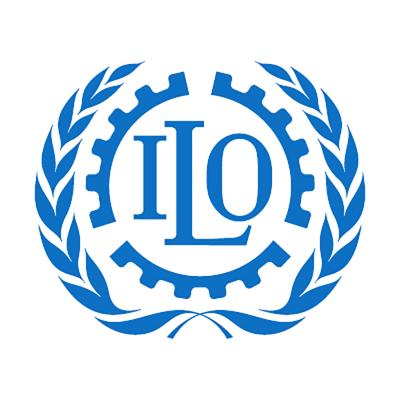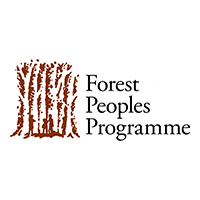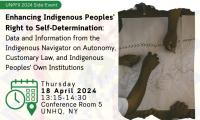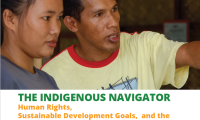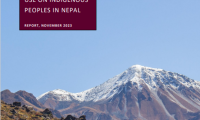Ensuring Indigenous Peoples Aren't Left Behind in Sustainable Development: Insights from Experts
Martin Oelz and Joji Carino shed light on the challenges Indigenous Peoples face in the context of sustainable development and the 2030 Agenda.
In a discussion on the Sustainable Development Goals and Indigenous Peoples, Martin Oelz, International Labour Organisation, and Joji Carino, Forest Peoples Programme, discussed the historical prioritization of modern economic development over Indigenous Peoples' rights and knowledge, often leading to the displacement of Indigenous communities from their lands for development projects.
Key takeaways from the dialogue:
Historical Disregard for Indigenous Rights:
Historically, states have given precedence to modern economic development, often at the expense of Indigenous rights and knowledge. This approach has led to the displacement of Indigenous Peoples from their ancestral lands without their consent for various development projects. Joji Carino, Senior Policy Advisor at Forest Peoples Programme, pointed out this troubling trend.
"It is crucial to acknowledge this historical injustice as we move towards a more inclusive and sustainable future."
A Rights-Based Approach to Development:
To ensure that Indigenous Peoples are not left behind in the pursuit of sustainable development, Martin Oelz, from the International Labour Organisation stressed the need for an inclusive, rights-based approach. A rights-based approach recognises that Indigenous communities have unique knowledge and perspectives that can enrich the implementation of the Sustainable Development Goals (SDGs). This, however, requires partnership and active participation from the very beginning on the part of duty bearers.
The Role of the SDGs:
The SDGs provide a significant opportunity for addressing the concerns of Indigenous Peoples. When implemented through partnerships and with Indigenous communities' active involvement, they can help bridge the development gap. The SDGs should not be seen as a one-size-fits-all solution but rather as a framework to be tailored to the unique needs and aspirations of Indigenous communities. As a result, dialogue, co-creation and consent are critical components to any effort to implement the SDGs and must be adhered to.
Monitoring Implementation:
An essential aspect of ensuring that Indigenous Peoples benefit from sustainable development is the monitoring of its implementation. Indigenous communities can build on their existing plans and institutions to support SDG targets. Community-based monitoring is a powerful tool that allows Indigenous Peoples to hold governments accountable and track potential threats to their well-being.
The Indigenous Navigator tool, developed by Indigenous organizations, support organisations and the International Labour Organization (ILO), provides tools and resources to Indigenous communities to collect data on their rights and priorities. This data is instrumental in advocacy efforts and engaging with stakeholders. Further it is a key component in supporting their assertion of their rights and self-determined development.
Challenges in Data Collection:
One significant challenge remins the lack of disaggregated data on Indigenous Peoples. Many countries are hesitant to include ethnic identifiers in their data, as this can be politically sensitive. Community-based monitoring becomes vital in such cases, as it can fill the gaps by generating alternative data. Having accurate and specific data is crucial for making informed decisions and developing targeted policies.
Partnerships and Capacity Building:
Partnerships between governments, Indigenous Peoples, and organizations like the Indigenous Peoples Major Group on the Sustainable Development Goals are essential to bring community experiences into global discussions. Capacity building and support for Indigenous institutions play a crucial role in strengthening their participation in these partnerships. When Indigenous communities are equipped with the knowledge and resources they need, they can more effectively advocate for their rights.
Engaging the Private Sector:
Finally, the pair discussed the issue of private sector engagement. Although partnership with private sector is a key component of the goals, it requires reconciling community-based approaches with the economic growth needs of these corporations. Indigenous Peoples should be supported as economic actors and entrepreneurs. Consultation and consent processes must extend beyond individual projects and aim to align development plans with Indigenous priorities from the outset. The well established and globally recognized right to Free, prior and informed consent (FPIC) is the bare minimum to which the private sector must adhere. Voluntary standards, complaints procedures, litigation, and engagement are tools that can help transform business practices that currently undermine Indigenous rights and help secure a more just and secure future for all.
Conclusion:
In their concluding remarks, both Joji Carino and Martin Oelz noted that ensuring that Indigenous Peoples are not left behind in the pursuit of sustainable development is a shared responsibility. By adopting a rights-based approach, fostering partnerships, and actively engaging Indigenous communities, we can work towards a future where all people, regardless of their ethnicity or background, benefit from the opportunities and benefits of the 2030 Agenda and the Sustainable Development Goals.
